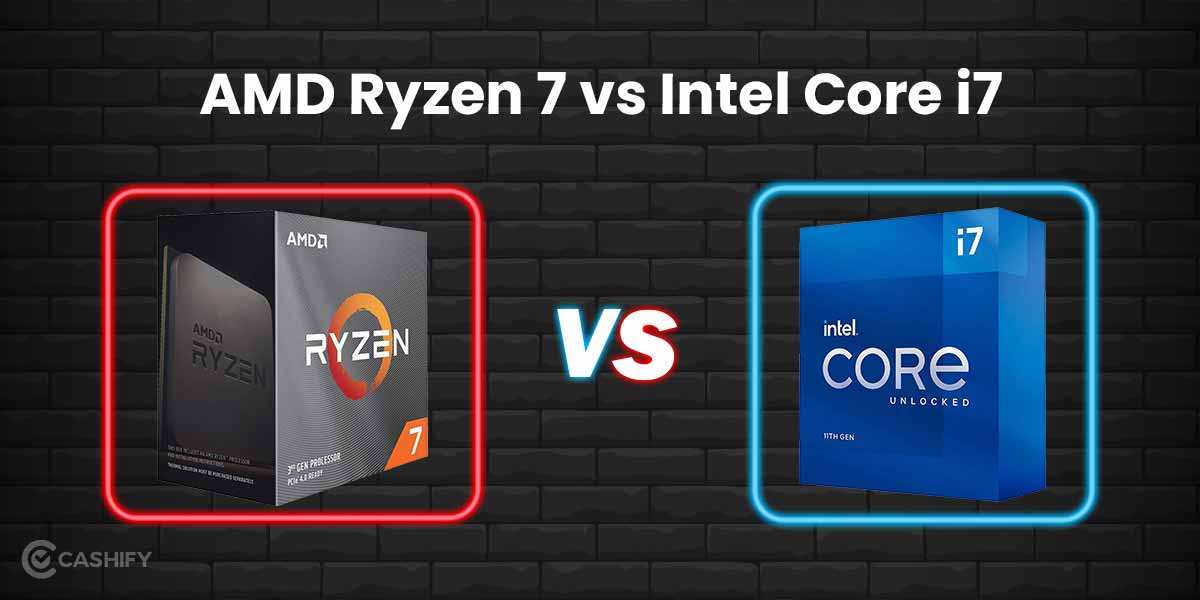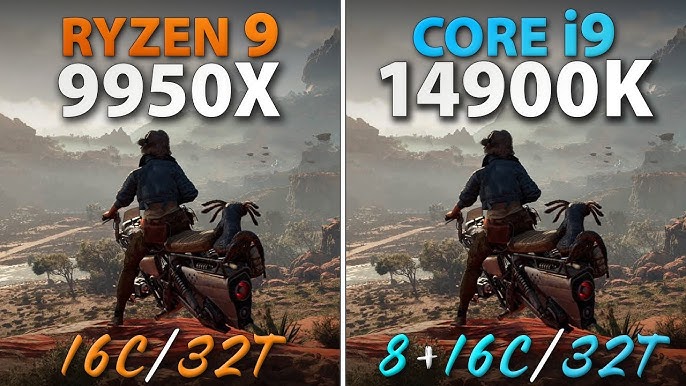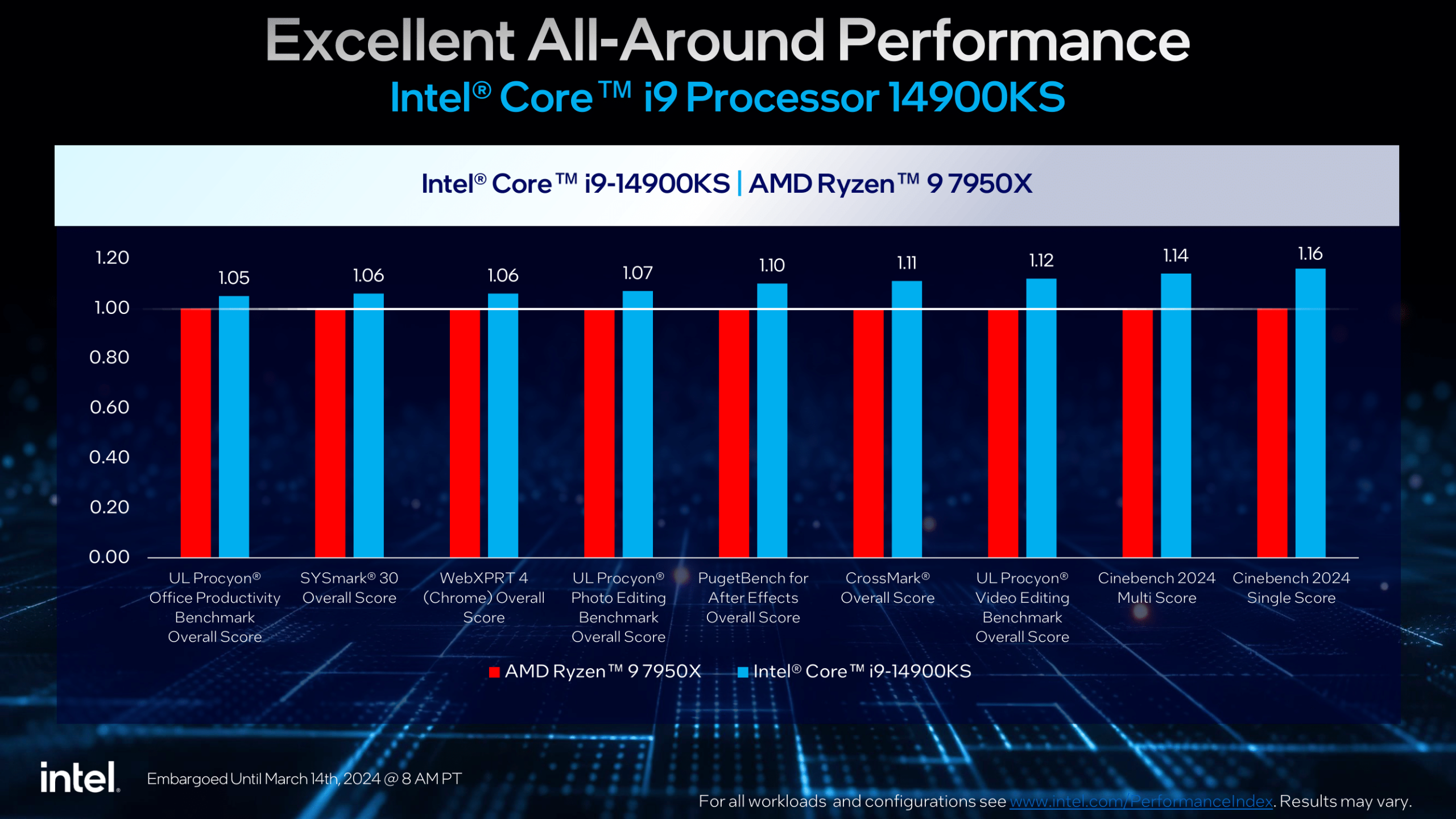Ryzen 7 vs i7: Unleashing the Battle of Processors
In the fast-paced world of computing, the battle between processors is a constant, and two heavyweight contenders stand out: AMD’s Ryzen 7 and Intel’s Core i7. Your choice of CPU can significantly impact your system’s performance, whether you’re gaming, creating content, or multitasking. In this comprehensive guide, we’ll dive into the heart of the Ryzen 7 vs i7 showdown, dissecting their features, benchmarking their performance, and helping you make an informed decision.
Ryzen 7 vs i7: Overview
When it comes to processing power, Ryzen 7 and i7 processors have earned their stripes as top players in the industry. Let’s begin with an overview of each:
Ryzen 7 Features and Benefits:
AMD’s Ryzen 7 processors are celebrated for their multi-core performance, thanks to their innovative Zen architecture.
These processors excel in tasks that demand parallel processing, such as content creation and 3D rendering.
Ryzen 7 CPUs often come with unlocked multipliers, making them overclocking-friendly for enthusiasts.
AMD’s competitive pricing puts high-performance computing within reach.
i7 Features and Benefits:
Intel’s Core i7 processors boast impressive clock speeds, offering snappy single-core performance for gaming and everyday tasks.
They are known for their power efficiency, making them an excellent choice for laptops and portable devices.
Intel’s established track record in the CPU market ensures a wide range of motherboard options and compatibility.
Core i7 processors are often favored for their robust single-threaded performance.
Ryzen 7 Features and Benefits
Ryzen 7 processors from AMD have been making waves in the computing world, and for good reason. Here are some of the key features and benefits that set them apart:
Multi-Core Power:
Ryzen 7 CPUs are designed with multi-core performance in mind. They typically come equipped with a high number of cores and threads, making them formidable contenders for tasks that require parallel processing.
Whether you’re a content creator tackling video editing or a gamer diving into the latest AAA titles, Ryzen 7’s multi-core prowess ensures smooth performance.
Zen Architecture:
AMD’s Zen architecture underpins Ryzen 7 processors, providing a solid foundation for performance and efficiency.
The Zen architecture’s modular design allows AMD to scale up the number of cores while maintaining energy efficiency, resulting in powerful yet power-conscious processors.
i7 Features and Benefits
Intel Core i7 processors, the stalwarts of the computing world, have earned their reputation for exceptional performance and efficiency. Here’s a closer look at what they bring to the table:
Impressive Clock Speeds:
Core i7 CPUs are renowned for their high clock speeds, especially in the Turbo Boost mode. This translates to snappy single-threaded performance, which is ideal for tasks like gaming and general computing.
Whether you’re running demanding software or indulging in the latest games, Core i7’s clock speeds keep things fluid.
Power Efficiency:
Intel’s focus on power efficiency has led to processors that excel in mobile devices and laptops. i7 CPUs are often the preferred choice for those seeking a balance between performance and battery life.
These processors are designed to optimize power consumption, ensuring your laptop can go the distance on a single charge.
Performance Comparison
Now that we’ve explored the unique features of Ryzen 7 and i7 processors, it’s time to dive into the heart of the matter: performance. These processors have distinct strengths, and understanding how they perform in real-world scenarios is crucial in making an informed decision.
Benchmarking Ryzen 7:
Ryzen 7 processors, with their multi-core capabilities, excel in tasks that demand parallel processing. Benchmark tests often showcase their prowess in content creation, video editing, and 3D rendering.
Gamers also benefit from Ryzen 7’s performance, particularly in titles that leverage multiple cores.
Benchmarking i7:
Core i7 processors, known for their high clock speeds, shine in single-threaded tasks. This translates to exceptional gaming performance, as many games rely on single-core speed.
While i7 CPUs are not lacking in multi-core performance, they may not match Ryzen 7 in highly threaded applications.

Gaming Performance
For many, gaming is a primary concern when choosing a processor. Let’s break down how Ryzen 7 and i7 processors perform in the gaming arena.
Ryzen 7 Gaming Performance:
Ryzen 7 CPUs offer excellent gaming performance, particularly in titles that can take advantage of multiple cores and threads.
Gamers who also engage in content creation or streaming will appreciate Ryzen 7’s ability to handle both gaming and resource-intensive tasks simultaneously.
i7 Gaming Performance:
Core i7 processors, with their high clock speeds, deliver exceptional single-threaded gaming performance.
In games where single-threaded speed matters most, such as many esports titles, i7 CPUs often outshine the competition.
Content Creation and Multitasking
Processing power becomes paramount when you’re delving into content creation or juggling multiple tasks simultaneously. Let’s explore how Ryzen 7 and i7 processors handle these demanding scenarios.
Content Creation with Ryzen 7:
Ryzen 7’s multi-core performance shines when it comes to content creation. Whether you’re editing videos, rendering 3D models, or working on graphic design, these processors can significantly reduce processing times.
Tasks that involve video editing, software development, and scientific simulations benefit from Ryzen 7’s capabilities.
Multitasking with i7:
Intel’s Core i7 processors are no slouch when it comes to multitasking. With their snappy single-threaded performance, they handle everyday tasks with ease.
If you’re a professional who often switches between applications or runs virtual machines, Core i7’s agility ensures a responsive computing experience.
Power Efficiency and Heat Management
Efficiency and heat management are vital considerations, especially for laptop users and those building compact systems. Let’s assess how Ryzen 7 and i7 processors handle power and heat.
Ryzen 7 Power Efficiency:
Ryzen 7 processors, while powerful, may consume more power compared to their i7 counterparts, especially under heavy loads.
AMD has made strides in improving power efficiency with each generation, but it’s essential to consider your system’s cooling capabilities and power supply when opting for the Ryzen 7.
i7 Power Efficiency:
Core i7 processors are known for their power efficiency, making them popular choices for laptops and energy-conscious users.
These CPUs strike a balance between performance and power consumption, ensuring longer battery life and cooler operation.
Price-to-Performance Ratio
Balancing performance with your budget is a crucial aspect of choosing the right processor. Let’s analyze the price-to-performance ratio of Ryzen 7 and i7 processors.
Ryzen 7 Pricing:
One of Ryzen 7’s standout features is its competitive pricing. AMD has consistently offered high-performance CPUs at a more budget-friendly price point compared to some competitors.
This affordability makes Ryzen 7 processors an attractive choice for those looking to maximize their computing power without breaking the bank.
i7 Pricing:
Core i7 processors typically come at a higher price point compared to Ryzen 7 CPUs with similar core counts and performance levels.
The Intel brand and established reputation often contribute to the higher price tag.
Compatibility and Motherboard Options
The choice of CPU also influences your selection of motherboards and overall system compatibility. Let’s explore the compatibility aspects of Ryzen 7 and i7 processors.
Ryzen 7 Compatibility:
Ryzen 7 processors use the AM4 socket, offering a wide range of motherboard options from various manufacturers.
AMD’s commitment to socket longevity ensures that you can find compatible motherboards for both current and future Ryzen 7 CPUs.
i7 Compatibility:
Core i7 processors are compatible with Intel’s LGA 1200 socket, which also provides multiple motherboard options.
The availability of motherboards with various chipsets gives users flexibility in selecting features and performance levels.
Frequently Asked Questions about Ryzen 7 and i7
1. What are the key differences between Ryzen 7 and i7 processors?
Ryzen 7 processors typically excel in multi-core performance, while i7 processors offer strong single-threaded performance. The choice depends on your computing needs.
2. Which is better for gaming, Ryzen 7 or i7?
Core i7 processors are often favored for gaming due to their high single-threaded performance. However, Ryzen 7 processors also provide excellent gaming capabilities.
3. Are Ryzen 7 processors better for content creation?
Yes, Ryzen 7 processors are well-suited for content creation tasks like video editing, 3D rendering, and graphic design due to their multi-core capabilities.
4. Do Ryzen 7 CPUs consume more power than i7 CPUs?
Ryzen 7 processors may consume more power, especially under heavy loads. Core i7 processors are known for their power efficiency.
5. Which processor offers better value for money?
Ryzen 7 processors often provide better value for budget-conscious users, offering high performance at competitive prices.
6. Are Ryzen 7 processors compatible with Intel motherboards?
No, Ryzen 7 processors use the AM4 socket and are not compatible with Intel motherboards. You’ll need a compatible AM4 motherboard.
Conclusion:
In the Ryzen 7 vs i7 showdown, the choice ultimately boils down to your specific needs and preferences. Both AMD’s Ryzen 7 and Intel’s Core i7 processors offer compelling features and benefits:




